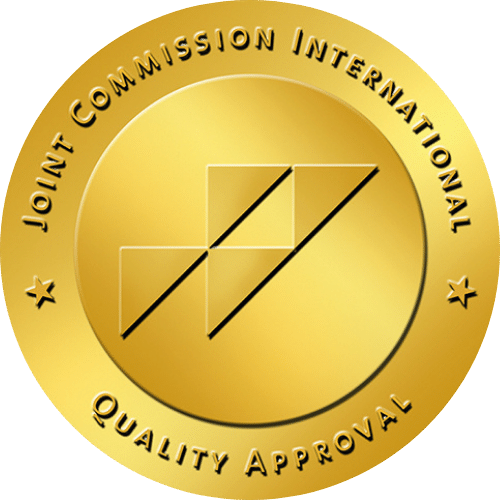4 min read
Can Depression Cause Memory Loss? Exploring the Link Between Depression and Memory Problems
Have you ever walked into a room and completely forgotten why you were there? Or perhaps you’ve been forgetting things more often and starting to wonder if something is wrong? If you’re feeling down, you might be asking yourself, Can depression cause memory loss? You’re not alone. Memory problems are common among people suffering from depression, and it’s important to understand how depression affects your brain, especially when it comes to your ability to remember.
Memory loss linked to depression can be scary and confusing. But don’t worry—there is a way to understand and manage it. In this article, we’ll dive into how depression affects memory, and explore practical steps you can take to manage the issue. Let’s begin by understanding the connection between depression and memory problems.

How Depression Affects Memory
When we think of memory problems, the first thing that often comes to mind is aging. But did you know that depression can also affect memory, and it’s not just limited to older adults? Depression can impact how well you focus, recall information, and even remember simple tasks.
You might notice that depression often causes short-term memory loss, which can make it difficult to recall recent conversations, appointments, or where you placed your keys. But long-term memories or learned skills like driving a car or playing a musical instrument are usually unaffected.
So, why does depression affect memory? Depression causes changes in the brain, particularly in the hippocampus, the area responsible for forming new memories. When depression takes hold, the brain becomes flooded with stress hormones that can impair this region, making it harder to focus and remember things. If you’ve been struggling with this, it’s important to recognize that it’s not your fault.
Short-Term Memory Loss and Depression
Short-term memory loss is one of the most noticeable memory issues linked to depression. Ever tried to read a page of a book only to find you’ve forgotten what you just read? Or maybe you’ve walked into a room and completely blanked on why you’re there? These common experiences are often related to depression. When your mind is clouded by sadness, stress, or hopelessness, it becomes harder to remember recent information or details.
You might feel like your brain is in a fog, and it can be incredibly frustrating. This happens because depression impacts your concentration, making it harder to retain and recall short-term information.
Can Depression Cause Amnesia?
Amnesia is the term for significant memory loss, particularly when it comes to forgetting entire episodes of your life. You might be wondering: Can depression cause amnesia? While depression does not typically lead to full-blown amnesia, it can still affect your autobiographical memory—the memories of your personal experiences.
In depression, the memory loss tends to be more subtle and involves forgetting details or having a generalized recollection of your life. This may feel like you’re losing parts of your past, even though full-on amnesia isn’t typically the result.
If memory loss is persistent or worsens over time, it may indicate a neurological condition such as amnesia. [Explore treatment options for amnesia and when to seek help here.]
The Impact of Depression on Memory Retrieval
When you’re depressed, the memories you can retrieve are often negative in nature. Depressed individuals are more likely to recall negative memories and emotions, which can make you feel stuck in a cycle of negativity. You might find it much harder to remember happy events or joyful experiences, and this can make the depression feel even worse.
Research on Depression and Memory Problems
There’s no shortage of research on the connection between depression and memory problems. Studies have found that depression is often linked to cognitive decline, particularly when it comes to short-term memory. But why does this happen?
It turns out that stress plays a huge role. Chronic stress increases the levels of cortisol, a hormone that can shrink the hippocampus. This process can make it even harder for your brain to form and retain memories, especially short-term ones. The more stress and negative emotions you experience, the greater the difficulty in remembering recent events or tasks.
Can depression affect memory?
Research has shown that depression, if left untreated, can even lead to more severe memory problems in older adults. In fact, some studies suggest that depression can be a risk factor for dementia due to its impact on brain volume, especially in areas related to memory.
How to Manage Memory Loss Caused by Depression
Now that we understand how depression impacts memory, you might be wondering: What can I do to improve my memory and manage these symptoms?
Luckily, there are several steps you can take to address memory loss caused by depression. By focusing on treating depression and taking care of your mental health, you can also improve your memory. Here are some actionable steps:
Treatments for Depression-Related Memory Loss
If you’re struggling with memory issues due to depression, the first step is to address the underlying depression. Therapy is one of the most effective treatments for depression, and it can help improve your memory. A trained therapist can guide you through techniques to reduce negative thinking patterns and focus on positive memories, which can improve your cognitive function.
Medications such as SSRIs (Selective Serotonin Reuptake Inhibitors) are also helpful for managing depression and can lead to improvements in memory as well. When your mood stabilizes, your ability to focus and remember will likely improve.
Lifestyle Changes and Memory Improvement
In addition to professional treatments, there are lifestyle changes you can make that may help improve memory. Exercise is a key factor—regular physical activity promotes neurogenesis (the growth of new brain cells), especially in the hippocampus, which is crucial for memory.
Another helpful tip is to keep your brain mentally active. Engage in activities that stimulate your mind, such as puzzles, reading, or learning new skills. This can help keep your brain sharp and better able to store and recall memories.
Treatments for Depression-Related Memory Loss
| Treatment | Effectiveness | Advantages | Disadvantages |
| Therapy (Cognitive Behavioral Therapy) | High | Helps identify and address the root causes of depression | Requires time and commitment |
| Antidepressants (SSRIs, SNRIs) | High | Can help balance brain chemicals and improve mood | Possible side effects (e.g., nausea, sleep issues) |
| Regular Exercise | High | Promotes brain health, boosts mood | Requires consistency |
| Memory Aids (e.g., alarms, lists) | Moderate | Can help organize daily tasks | Doesn’t address the underlying cause of memory loss |
| Support Groups | Moderate | Provides emotional support from others | May not be accessible for everyone |
Here’s a quick comparison of different treatment options for memory loss due to depression:
Can Depression Cause Memory Loss and What Can You Do About It?
Can depression cause memory loss? Yes, depression can significantly affect short-term memory and hinder your ability to focus, remember tasks, and recall recent events. But the good news is that memory loss due to depression is treatable.
By addressing the root cause—depression—and incorporating treatment options such as therapy, medication, and lifestyle changes, you can regain control over your memory and overall well-being. Remember, you don’t have to face this alone. If you’ve been struggling with depression and memory loss, reaching out for help is the first step towards feeling better.
Frequently Asked Questions (FAQs) about: Can depression cause memory loss?
1. Can depression cause memory loss?
Yes, depression can cause short-term memory loss and difficulty focusing. When you’re depressed, your brain’s ability to retain and recall recent information is often impaired due to the impact of depression on brain regions like the hippocampus. This can make daily tasks more challenging and create a sense of mental fog. However, long-term memory is typically not affected by depression.
2. Is memory loss a common symptom of depression?
Yes, memory problems are commonly reported by people with depression. Many individuals struggle with short-term memory, including forgetfulness or difficulty concentrating. Depression also affects cognitive functions such as decision-making and task completion. This is due to the impact of depression on the brain’s neural pathways, particularly those involved in memory formation.
3. How can I improve my memory if depression is causing problems?
The most effective way to improve memory when depression is the cause is to treat the depression itself. Therapy (especially Cognitive Behavioral Therapy) and antidepressants like SSRIs can improve mood and cognitive function. Additionally, regular exercise, mental stimulation (like puzzles or reading), and healthy sleep habits can help support brain health and improve memory.
4. Can depression lead to dementia?
In some cases, long-term depression can increase the risk of dementia, particularly in older adults. Depression may contribute to cognitive decline and a reduction in gray matter in the brain, which is associated with memory and cognitive functions. Early intervention and treatment of depression can help mitigate the risk of further cognitive impairment.
5. Are antidepressants responsible for memory loss?
Some antidepressants, especially tricyclic antidepressants, may have side effects that include memory problems or difficulty concentrating, especially during the early stages of treatment. However, for most people, SSRIs and other newer antidepressants do not have significant effects on memory. It’s essential to discuss any concerns with a healthcare provider, as the benefits of antidepressants often outweigh the potential side effects.

